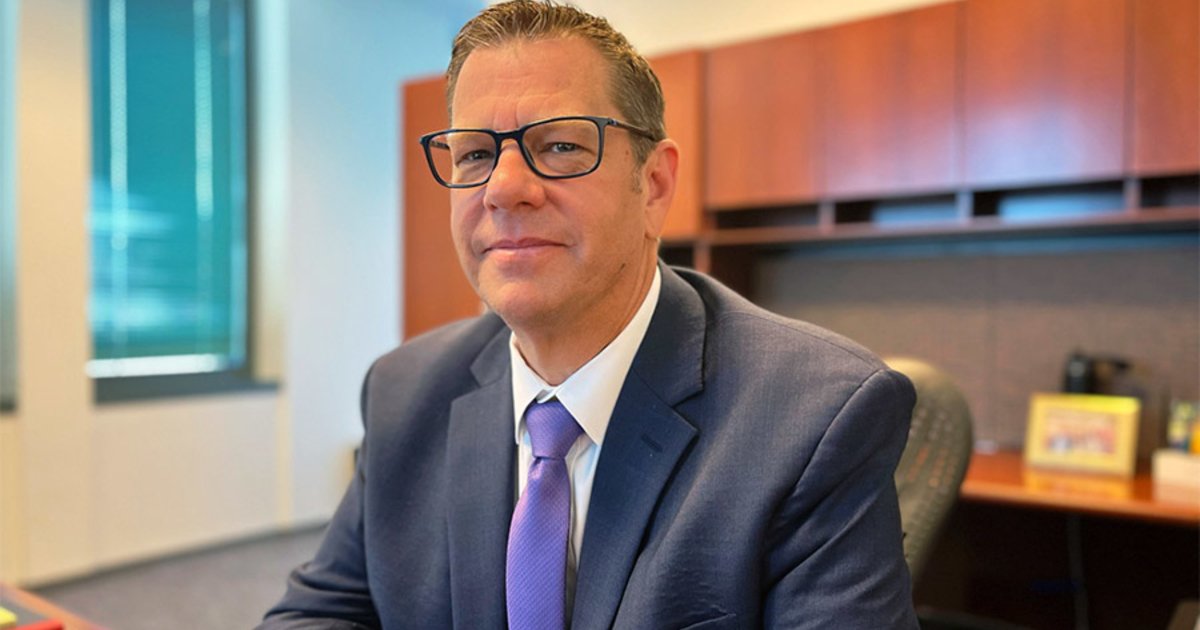
WASHINGTON — The new chief of the nation’s top auto safety regulator said the agency hasn’t been holding back as it works through a backlog of regulatory to-dos, sorts through first-of-its-kind crash data and steps up an investigation into Tesla Inc.’s Autopilot.
“I think we’ve probably increased the scrutiny on all automakers since last year,” said Steven Cliff, who was confirmed by the Senate in May as NHTSA’s 16th administrator. The agency had been without a permanent leader since 2017, when Mark Rosekind resigned as the Trump administration took over.
“We’re making sure that the regulations we have on the books are implemented,” he said. “If we don’t have regulations but there’s still a safety defect, we’re addressing those issues and getting new regulations on the books as quickly as we can — and all in an effort to enhance safety.”
Cliff, 52, spoke Wednesday from his office at the U.S. Department of Transportation in his first interview with Automotive News since being sworn in as the new NHTSA chief.
He previously was the agency’s deputy administrator — a role he had been in since shortly after President Joe Biden was inaugurated in 2021, a year that saw 1,093 issued recalls, “the most in NHTSA’s history,” Cliff said.
The agency — even prior to the Biden administration — often has been criticized by safety advocates and lawmakers for a significant backlog of regulatory safety to-dos. As administrator, Cliff said he’s made it a priority to tackle the list and get as many regulations finished as possible.
“The regulatory work, I think, is kind of our bread and butter here,” he said. “So, getting those regulations done was really key to the agency.”
By the end of June, NHTSA will have finished 16 final rules, initiated 25 new rule-makings and issued notices of proposed rule-makings on five rules as well as a request for comment on updates to its New Car Assessment Program since Cliff joined the agency.
Under its new chief, NHTSA also released first-of-its-kind data on crashes linked to advanced driver-assistance systems and fully automated-driving systems.
Of the nearly 400 crashes reported to the agency involving driver-assist systems, Tesla and American Honda Motor Co. reported the most. The agency cautioned, however, that the data is preliminary and is affected by a company’s access to crash data, unverified or incomplete incident reports, multiple reports of the same crash and other limitations.
“It wasn’t part of our objective to gather data to compare systems,” Cliff said. “It was our objective to gather data in order to get much-needed data about the safety of the technologies in general and for us to use that information to follow up on specific incidents where we can learn more information about what contributed to that incident.”
The data already has been used to trigger recalls and inform new and ongoing safety probes such as NHTSA’s recently upgraded investigation into Tesla’s Autopilot driver-assist system after a series of crashes in the U.S. that resulted in more than a dozen injuries and one death.
It is also helping the agency as it prepares to issue a proposal to require automatic emergency braking, including pedestrian detection, on all new light-duty vehicles and set minimum performance standards by the end of the year.
The technology, part of advanced driver-assistance systems, can avoid or lessen the severity of crashes but has been problematic for some motorists as it becomes more common across all makes and models.
To finalize the rule, Cliff said, NHTSA will have to show the technology can meet the standards and that the agency has objective tests for determining compliance.
This past year, NHTSA opened two separate investigations involving Tesla and Honda vehicles after receiving hundreds of complaints alleging unexpected activation of the automatic emergency braking system, characterized by some Tesla owners as “phantom braking.”
“It is, I think, incumbent on the industry — as well as us working with industry — to make sure that any new technology doesn’t have a defect and that if a defect is identified that it’s handled appropriately, usually through a recall,” Cliff said.
Asked about Tesla’s decision this month to bring back its Enhanced Autopilot driver-assist package — a $6,000 feature that sits between standard Autopilot and the incomplete Full Self-Driving beta software at $12,000 — the NHTSA chief said the agency’s work with the electric vehicle maker involves “constant communication and a really good understanding of when new technologies are going to be introduced.”
“We think that safety is enhanced when we know about things that are happening and there’s been a discussion,” Cliff said. “Generally speaking, that’s how we’ve approached the industry, and I think the industry has been really responsive.”